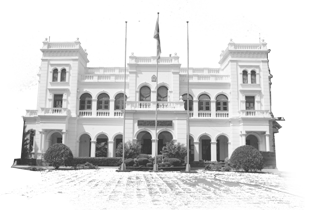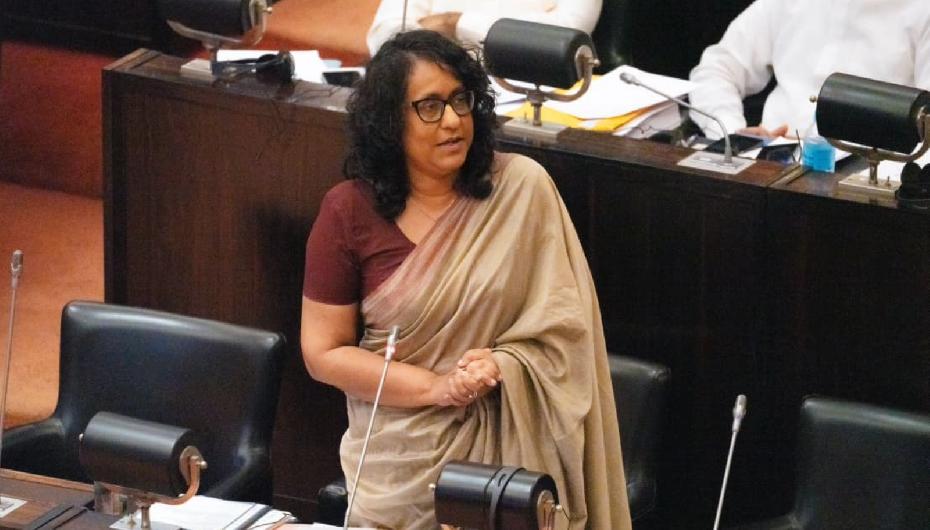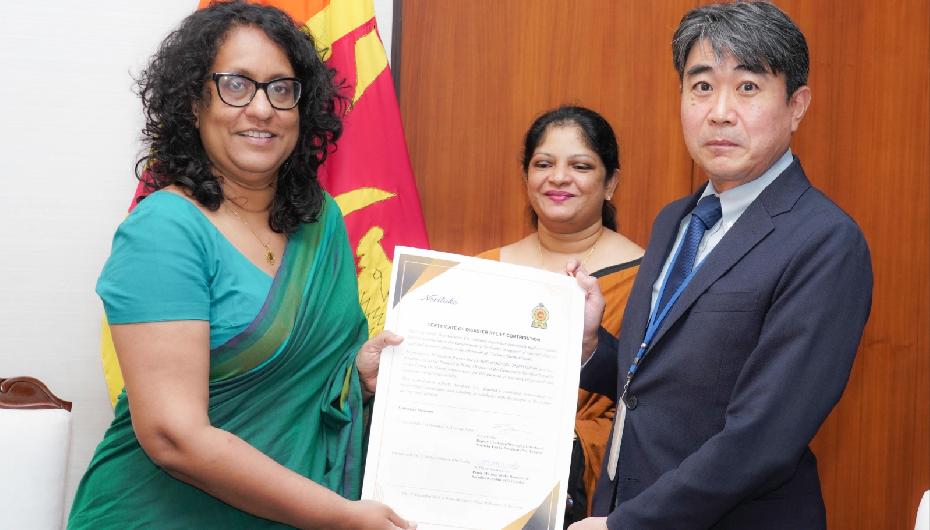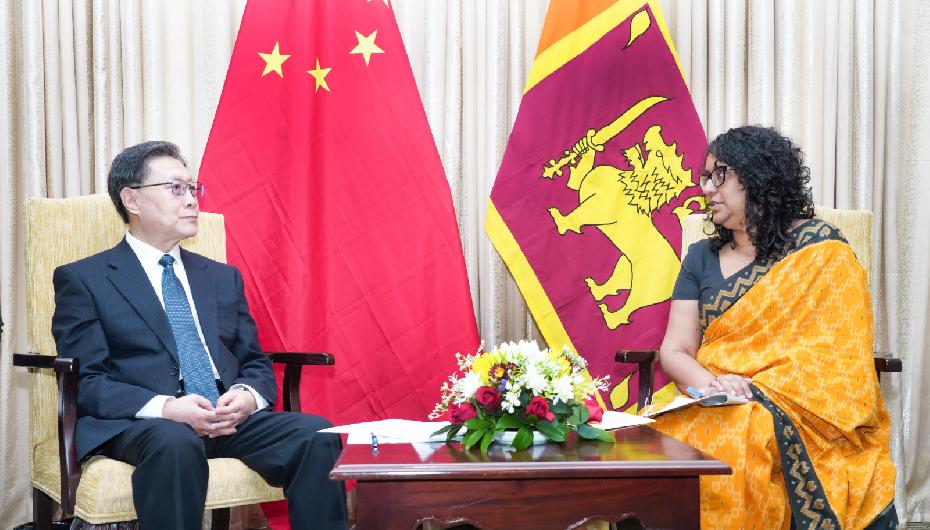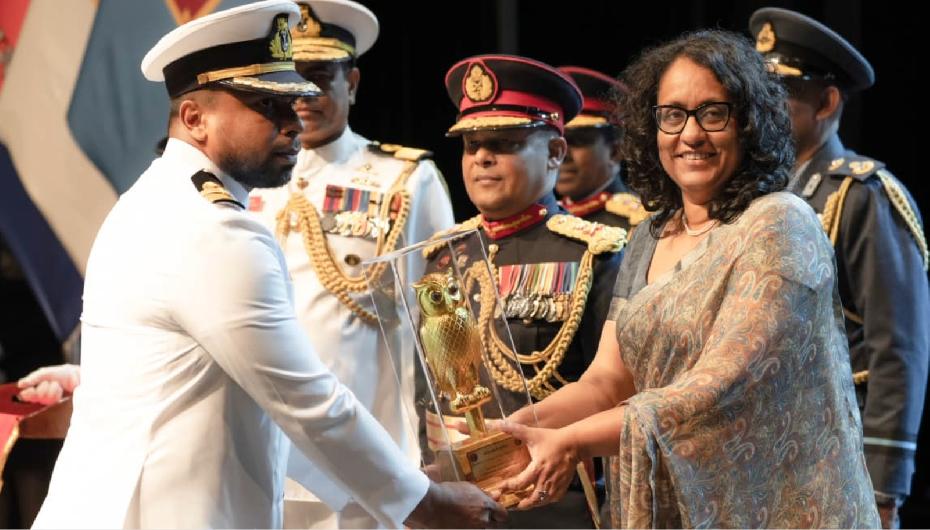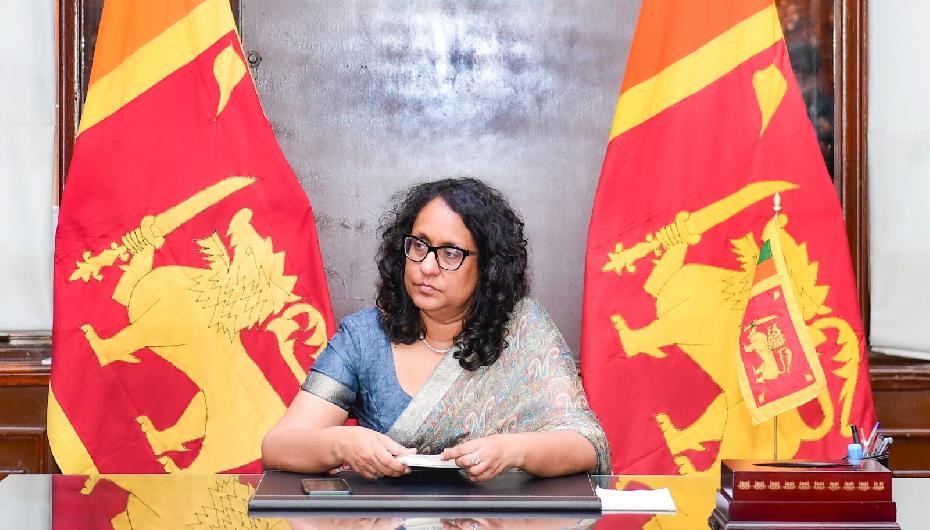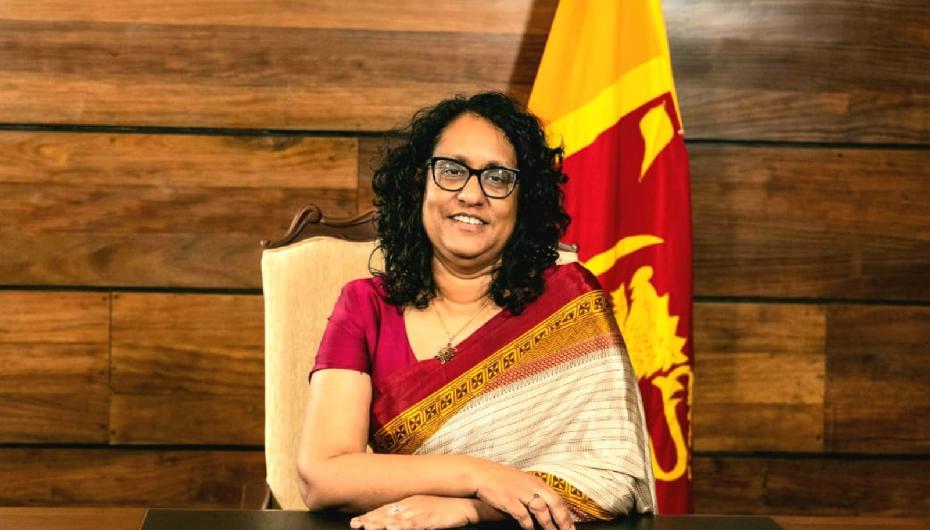විධායක ජනාධිපති ක්රමය අහෝසි කර පාර්ලිමේන්තු ආණ්ඩු ක්රමයක් ස්ථාපිත කිරීම සඳහා අවශ්ය කටයුතු සිදු කරනවා. - අග්රාමාත්ය ආචාර්ය හරිනි අමරසූරිය
පළාත් සභා මැතිවරණය හැකි ඉක්මනින් පැවැත්වීමට අවශ්ය කටයුතු මේ වන විට සිදු කරමින් යනවා.
විධායක ජනාධිපති ක්රමය අහෝසි කර පාර්ලිමේන්තු ආණ්ඩු ක්රමයක් ස්ථාපිත කිරීම සහ විධායක බලතල රහිත ජනාධිපතිවරයෙක් පත්කිරීම සඳහා අවශ්ය කටයුතු සිදු කරන බවත්, 2017 අංක 17 දරණ පළාත් සභා ඡන්ද විමසීම් සංශෝධන පනතේ විධිවිධාන හේතුවෙන් නතර කර ඇති පළාත් සභා මැතිවරණය පැවැත්වීමට අවශ්ය කටයුතු සිදු කරමින් පවතින බවත් අග්රාමාත්ය ආචාර්ය හරිනි අමරසූරිය පැවසුවාය.
විපක්ෂ නායක සජිත් ප්රේමදාස විසින් 27/2 යටතේ ඉදිරිපත් කළ ප්රශ්නයකට පිළිතුරු ලබා දෙමින් අග්රාමාත්යතුමිය අද (දෙසැම්බර් 19) පාර්ලිමේන්තුවේදී මේ බව පැවසීය.
මෙහිදී වැඩි දුරටත් අදහස් දැක් වූ අග්රාමාත්ය ආචාර්ය හරිනි අමරසූරිය මෙසේ ද කීවාය.
පොහොසත් රටක් ලස්සන ජීවිතයක් ප්රතිපත්ති ප්රකාශයේ 194 පිටුවේ සඳහන් පරිදි නව ආණ්ඩුක්රම ව්යවස්ථාවක් කෙටුම්පත් කරනවා. එය මහජනතාවට ඉදිරිපත් කර සංවාදයකින් අනතුරුව අවශ්ය වෙනස්කම් සිදු කර ජනමත විචාරණයකින් අනතුරුව සම්මත කර ගැනීමයි රජයේ අපේක්ෂාව. මේ වන වට මීට පෙර නව ආණ්ඩුක්රම ව්යවස්ථාවක් සකස් කිරීම සඳහා පත් කරන ලද කමිටු වාර්ථා සහ අනෙකුත් ආණ්ඩුක්රම ප්රතිසංස්කරණ යෝජනා සළකා බලමින් සිටිනවා. අනතුරුව එහි මූළික සංකල්ප පත්රිකාව අමාත්ය මණ්ඩලයට ඉදිරිපත් කරන්න නියමිතයි.
විධායක ජනාධිපති ක්රමය අහෝසි කර පාර්ලිමේන්තු ආණ්ඩු ක්රමයක් ස්ථාපිත කිරීම සහ විධායක බලතල රහිත ජනාධිපතිවරයෙක් පත්කිරීම සඳහා නව ආණ්ඩුක්රම ව්යවස්ථාවක් සම්පාදනය කරන අවස්ථාවේදීම අවශ්ය කටයුතු සිදු කරනවා. නව ව්යවස්ථාවක් ගෙන ඒමෙන් තොරව විධායක ජනාධිපති ක්රමය අහෝසි කළ නොහැකියි. විධායක ජනාධිපති ක්රමය අහෝසි කිරීම සහ එය සිදු කළ හැකි ආකාරය පිළිබඳ අධ්යයනයක් මේ වන විට සිදු කරමින් තිබෙනවා. රටේ ප්රමුඛ ප්රශ්න විසඳීම සඳහා අවධානයක් ලබා දෙන අතරම විධායක ජනාධිපති ක්රමය අහෝසි කිරීම සඳහා අවධානය යොමු කර තිබෙනවා. ඊට අදාල නිශ්චිත කාලවකවානු ඉදිරියේදී ප්රකාශයට පත් කරනවා.
පළාත් සභා මැතිවරණය හැකි ඉක්මනින් පැවැත්වීම සඳහා අවශ්ය කටයුතු මේ වන විට සිදු කරමින් යනවා. 2017 අංක 17 දරණ පළාත් සභා ඡන්ද විමසීම් සංශෝධන පනතේ 3 (ආ) වගන්තිය යටතේ හදුන්වා දී ඇති විධිවිධාන අනුව ජනාධිපතිවරයා විසින් පත් කරනු ලබන සීමා නීර්ණය කිරීමේ කමිටුවක් මගින් මැතිවරණයට අදාල මැතිවරණ කොට්ඨාස සීමා නීර්නය කිරීම සහ මැතිවරණ කොට්ඨාස ගණනය කිරීම තීරණය කිරීම සම්බන්ධයෙන් වාර්තාවක් ඉදිරිපත් කළ යුතු අතර එම වාර්ථාවට පාර්ලිමේන්තු අනුමැතිය ලැබීමෙන් පසුව පළාත් සභා ඡන්ද විසීම පැවැත්වීමට හැකියාව තිබෙනවා.
පළාත් සභා ඡන්ද විමසීම පැවැත්වීමට මේ දක්වා නොහැකි වී තිබෙන්නේ 2017 අංක 17 දරණ පළාත් සභා ඡන්ද විමසීම් සංශෝධන පනතේ විධීවිධාන අනුව මැතිවර්ණ සීමා නීර්ණ කටයුතු අවසන්ව නොමැති නිසයි. ඒ අනුව සීමා නීර්ණය අවසන් කළ පසු පළාත් සභා මැතිවරණය පවත්වනවද නැත්නම් 2017 අංක 17 දරණ පළාත් සභා ඡන්ද විමසීම් සංශෝධන පනතේ විධීවිධාන සඳහා සංශෝධනයක් ගෙන එමින් පළාත් සභා මැතිවරණය පවත්වනවාද කියන එක ගැන මේ වනවිට අධ්යයනයක් කරමින් පවතිනවා. ඒ අධ්යයනයෙන් පසු පළාත් සභා මැතිවරණය පැවැත්වීම ගැන තීරණයක් ගන්නවා. කෙසේ වෙතත් මේ කටයුතු අවසානයේ මැතිවරණය පැවැත්වීම සඳහා 2026 අයවැය තුළින් ප්රතිපාදන වෙන් කර තිබෙනවා.
එසේම රජයේ අභිචෝධකාගාරය ඇති කිරීම සඳහා අවශ්ය නව නීති සහ නීති සංශෝධනය කළ යතු අවස්ථා පිළිබඳ මේ වනවිට අධ්යයනය කරමින් පවතින බවද අග්රාමාත්ය ආචාර්ය හරිනි අමරසූරිය පැවසුවාය.
අග්රාමාත්ය මාධ්ය අංශය


